UC Law SF Students Will Give Free Legal Aid to Indigenous Communities This Summer
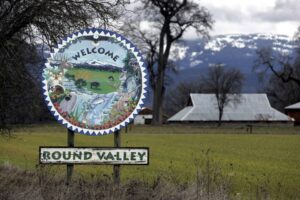
UC Law SF students will provide free legal assistance to members of the Round Valley Indian Tribes and others this summer.
From helping Native Americans draft wills, stay in their homes, and navigate the court system, four UC Law SF law students will spend this summer assisting indigenous tribes in California with legal matters.
The four fellows will work with various legal organizations and judges in Mendocino and Humboldt Counties, helping members of the Round Valley Indian Tribes and other California tribes for free. The fellowships were made possible by funds donated by UC Law SF alumnus Joseph W. Cotchett ’64 and allocated by Chancellor and Dean David Faigman.
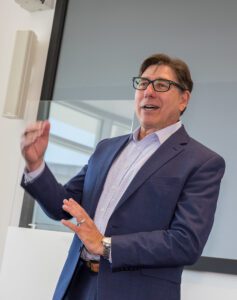
UC Law SF Chancellor and Dean David Faigman allocated funding for four fellowships.
Besides giving students valuable experiential learning, the summer fellowships are part of ongoing restorative justice efforts launched under Dean Faigman, which began after he learned about the involvement of Serranus Hastings, the law school’s founder and namesake, in atrocities committed against indigenous people in the 1850s.
Associate Dean of Experiential Learning Gail Silverstein created the fellowship program and expects it to provide valuable support for organizations and rural courts that tend to be extremely busy and operate on limited budgets. “None of these four placements regularly has summer interns so we hope the assistance we provided will make a big difference,” Silverstein said.
SAVANNAH CARTER
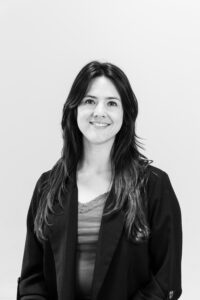
Savannah Carter will work as a law clerk for California Indian Legal Services’ Eureka office.
Savannah Carter, who recently completed her 1L year, will serve as a law clerk for California Indian Legal Services, which works to safeguard the rights of Native American children and families. The group also helps tribe members draw up wills and protect their assets. Additionally, it lobbies for cultural resource protection and helps tribal governments develop courts and law enforcement agencies.
Carter, who is from Sunset Beach, California, said she wants to use her skills and knowledge to fight racial injustice and empower people from marginalized backgrounds.
“It is extremely important to recognize systemic and historic injustices in our own communities, and we can do that by serving those who typically don’t have access to our legal system at large,” Carter said.
Through this fellowship Carter expects to develop a better understanding of each tribe’s unique characteristics and needs. She also hopes to gain firsthand knowledge in a complex field of law and experiences that will help her grow as a socially conscious professional.
She said, “I hope that this experience will guide me in learning more about how to become a better advocate, particularly one who recognizes the importance of cultural differences as a guiding principle to effective representation.”
TELESIA HUNKIN
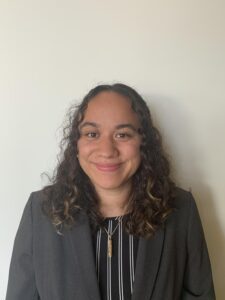
Telesia Hunkin will work for Legal Services of Northern California’s Ukiah office.
Telesia Hunkin, a rising 3L student, will work at Legal Services of Northern California’s Ukiah office providing free legal aid to tribe members. The organization helps low-income individuals obtain and keep housing, government benefits and health care, among other services.
Hunkin, who grew up in Oakland, said her identity as an indigenous woman gives her a unique perspective on issues facing Native Americans. Rather than act like professionals who enter indigenous communities and tell people what to do, she said she wants to try a different approach.
“I hope to help members of tribes and rural communities by listening to their voices, advocating for their very real needs and providing guidance,” Hunkin said.
Through this fellowship, Hunkin aims to hone her critical thinking skills and gain practical experience so she can become a more effective advocate for underserved communities.
“As an indigenous woman of color, I feel my own background and upbringing has taught me how to be a good person,” Hunkin said. “This fellowship will allow me to take those skills and become a good advocate.”
KRISTA SAENZ
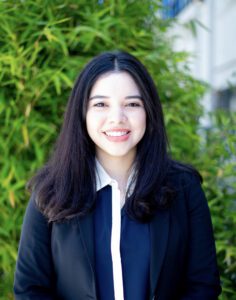
Krista Saenz will clerk for the chief judge of a tribal court in Covelo, California.
Krista Saenz, who starts her 3L year this fall, will clerk for Chief Judge Joseph Wiseman of the Round Valley Indian Tribes’ Tribal Court. There, she will research novel legal issues, write legal memoranda and help draft opinions, among other duties.
Saenz, who comes from Alhambra, said she chose to study law at UC Law SF with the goal of advocating for those most in need of legal representation.
“My aspiration is to help people to my utmost capacity and strive for progress so that the law reflects the contemporary needs of society,” Saenz said.
Through this fellowship, Saenz said she expects to gain new insights into the complex field of tribal law. She also hopes to make a positive difference in a community that was historically wronged.
“By participating in this fellowship, I can take part in a movement that acknowledges the injustices of the past, but also actively participate in the restorative justice efforts with the Round Valley Indian Tribes,” Saenz said.
MICHAEL WAMBACH
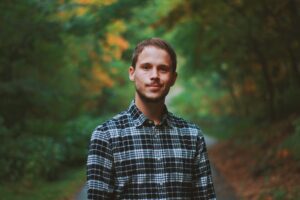
Michael Wambach will work at the Mendocino County Superior Court’s self-help desk in Ukiah.
Michael Wambach, who just finished his 1L year, will work at the Mendocino County Superior Court’s self-help desk, which provides services and information to those who lack legal representation. Wambach will conduct weekly outreach to connect members of the Round Valley Tribes in the Fort Bragg area to the court’s self-help desk in Ukiah. He also expects to create a document advising the state court on how it can be more proactive in serving as a resource to tribe members.
Growing up on the Minnesota-Wisconsin border near Lake Superior, Wambach said he recognized the nearby Ojibwe and Dakota tribes as leaders of progressive change.
“It’s unquestionable to me that tribes exercising their inherent rights is an essential aspect of a more equitable world,” he said. “For this reason, I’m humbled to have the opportunity to learn about the Round Valley Tribe’s experience in California firsthand.”
Wambach, a member of the UC Law SF Native American Law Students Association, said from this experience he hopes to gain insight on how the law affects tribes and rural communities. He also expects to acquire new skills and knowledge as he pursues a career as a public servant or public land advocate.